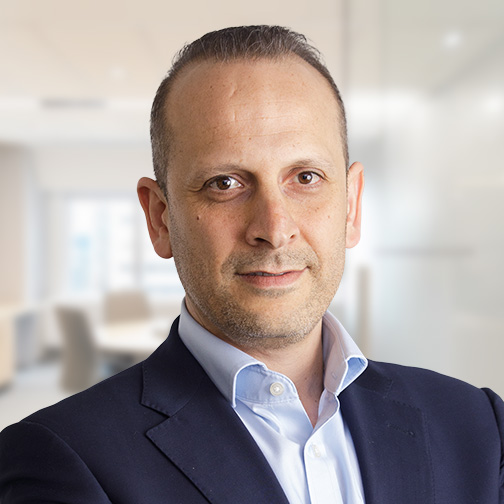Commentary
FEM Q2 2024 Manager Letter
August 7, 2024

The strategy focuses on investing in frontier and emerging market companies that our team expects will benefit from demographic trends, changing consumer behavior, policy and regulatory reform, and technological advancements.
Below, we explore several key factors influencing returns and share observations on the portfolio and the markets.
Retail Portfolio
The strategy saw healthy returns during the period from the ASEAN retail portfolio, led by Philippines Seven Corp. (the master franchisee of 7-11 stores in the Philippines) and Mr. DIY Group (the multi-price point value retailer in Malaysia).
Our investment in Philippines Seven Corp. (SEVN) is premised on its first-mover advantage in convenience store (CVS) retailing in the country. As of the end of March 2024, SEVN has a network of 3,829 stores, ~9x that of its closest competitor. The magnitude of SEVN’s scale advantage is perhaps best captured by the fact that its annual store openings nearly match the entire store network of its closest competitor. Scale and location are key success factors in convenience retail, especially in an archipelago where an efficient and agile supply chain requires significant capital and operating investment.
From a top-down perspective, the Philippines’ large and young population (+100 million people with a median age of 25), expanding cities, and growing tourism sector should provide a long growth runway for CVS retail, resulting in a narrowing of the penetration gap (measured in CVS stores per capita) with neighboring countries like Malaysia and Thailand.
In addition to scale, location, and market opportunity, SEVN’s management team has proven over the years to be formidable operators and good stewards of shareholder capital.
Our team turned more bullish on SEVN at the end of last year, encouraged by evidence of an inflection point in store productivity, resilient operating margins, and an acceleration in store openings. Unusually, the stock was trading at all-time low multiples despite the company reporting three consecutive quarters of strong results. The team also identified a catalyst for the shares in the form of an expectation that SEVN will resume paying dividends after a three-year hiatus due to an SEC (the Philippines Capital Markets Regulatory Agency) mandated technicality. This technicality resulted from the implementation of IFRS 16 accounting standards in the Philippines in 2019. For SEVN, the capitalization of leases mandated by IFRS 16 standards created a large, deferred tax asset which, according to SEC rules, is deducted from the retained earnings base from which the company can pay dividends. On a recent earnings call, management estimated that the company is sitting on twice the amount of cash it needs to run and grow the business due to its inability to pay out excess cash. As SEVN’s operations accumulated cash (reaching ~20% of its market capitalization), retained earnings finally exceeded the regulatory hurdle above which dividends can be paid, and management was able to recommend a dividend to its board. Furthermore, management announced it is in the process of crafting a dividend policy that will entail distributing excess cash on an annual basis, a positive step.
Mr. DIY Group’s (MDIY) shares benefited from the anticipation of a recovery in demand from the B40 group of Malaysian households (B40 refers to the bottom 40% income group). This optimism stemmed from the restructuring of the Employee Provident Fund (EPF), which created a new “flexible” sleeve that allows for early withdrawals from beneficiaries below the age of 55 (previously, early withdrawals were only possible for critical needs like healthcare, housing, and education). The expectation is that this new feature (effective from May 11, 2024) will support disposable incomes and lead to a boost in spending among the B40 group.
MDIY is well-positioned to benefit from this given it is over-indexed to shoppers from the B40 group. For context, the company operates 1,283 stores in Malaysia (as of the end of March 2024) and has been expanding stores at a net rate of ~150 per year since 2017. This rapid expansion in stores has been internally funded by a highly cash-generative business model characterized by fast breakeven periods on new stores (2-3 years), reflected in industry-leading returns.
This profitability is supported by a virtuous cycle of supply chain optimization and store-level operating efficiency that enables the company to invest in price and offer shoppers value-for-money across the +10k SKUs it carries on its shelves. Low prices and new store expansion drive demand and larger volumes, which the company uses to negotiate with suppliers and unlock further discounts. Overlaying that cycle is a highly scientific approach to SKU management, which ensures optimized inventory turnover and minimizes drags on operations and the shopping experience. MDIY has also become more progressive with dividends in the last twelve months, with a quarterly payout policy of 50-65% of earnings, an appropriate level that balances the company’s strong cash position and growth requirements.
Internet and Technology Portfolio
Investments that the team made and wrote about in previous letters, including Vietnam’s FPT Corporation (FPT) and Turkey’s Logo Yazilim Sanayi (LOGO), performed well in the quarter.
We are especially pleased to see that FPT’s early foray into the AI space through global partnerships and acquisitions is helping it sustain a robust growth profile in global IT services. This was evident in the first half 2024 results, wherein global IT services revenue grew at ~30% in the first half of 2024 and is showing no signs of slowing down. FPT’s global IT services business exceeded $1bn in revenue in 2023, and recent underlying trends are positive with a larger proportion of higher-value digital transformation projects in the mix (47%), a diversified and growing geographical revenue stream across APAC, US, and Europe, and an increase in the number of contract wins in excess of $5m. FPT is also reinforcing its human resource advantage by adding AI and other technology modules to its university curriculum, which will help its own workforce and supply future skilled workers for other technology companies in Asia and around the world. For example, FPT University is expected to admit 1,000 students for the first batch of its semiconductor major, specializing in integrated circuit design.
LOGO shares performed well in the period as investor confidence in Turkey’s outlook strengthens. The government seems intent on pursuing macroeconomic policy orthodoxy that started a year ago. This policy goodwill is reflecting itself in Turkish assets, with the BIST 30 index up ~30% in the first half of 2024, and Moody’s upgrading its credit rating of the country by two notches from B3 to B1 in July. While it is early days and inflation remains stubbornly high (a staggering 75% in May 2024), Moody’s forecasts that inflation will begin to moderate from elevated levels and exit the year with a print of 45%.
If the economy does indeed turn a corner and business confidence grows, this will reflect positively on LOGO, which has so far underperformed the broader market (on a twelve-month basis) due to margin pressure from wage inflation and headcount investments, softness in its core SME segment in Turkey, and drag from its EUR-denominated low-margin business in Romania. Nevertheless, we remain confident in LOGO’s position as the leading enterprise resource planning (ERP) provider for Turkey’s large SME corporate market and are constructive on management’s initiatives to improve product flexibility through Software-as-a-Service (SaaS), and expand the product suite to new segments of the market (large retail customers, micro SMEs, e-government services, and HR). This should drive the penetration of ERP software in the country and position the company for strong earnings growth as business confidence returns.
Outlook
We continue to be constructive on the opportunity set for the strategy for the second half of the year. We believe we positioned the portfolio to be considerate of changes in the interest rate cycle, political environment, and portfolio company valuations. As always, the ultimate objective of our decision-making process is to express our best research opinions through a diversified portfolio of high-quality businesses that we believe will help us deliver on the strategy’s return promise to investors.
We look forward to continuing to update you on the strategy over the rest of the year.



